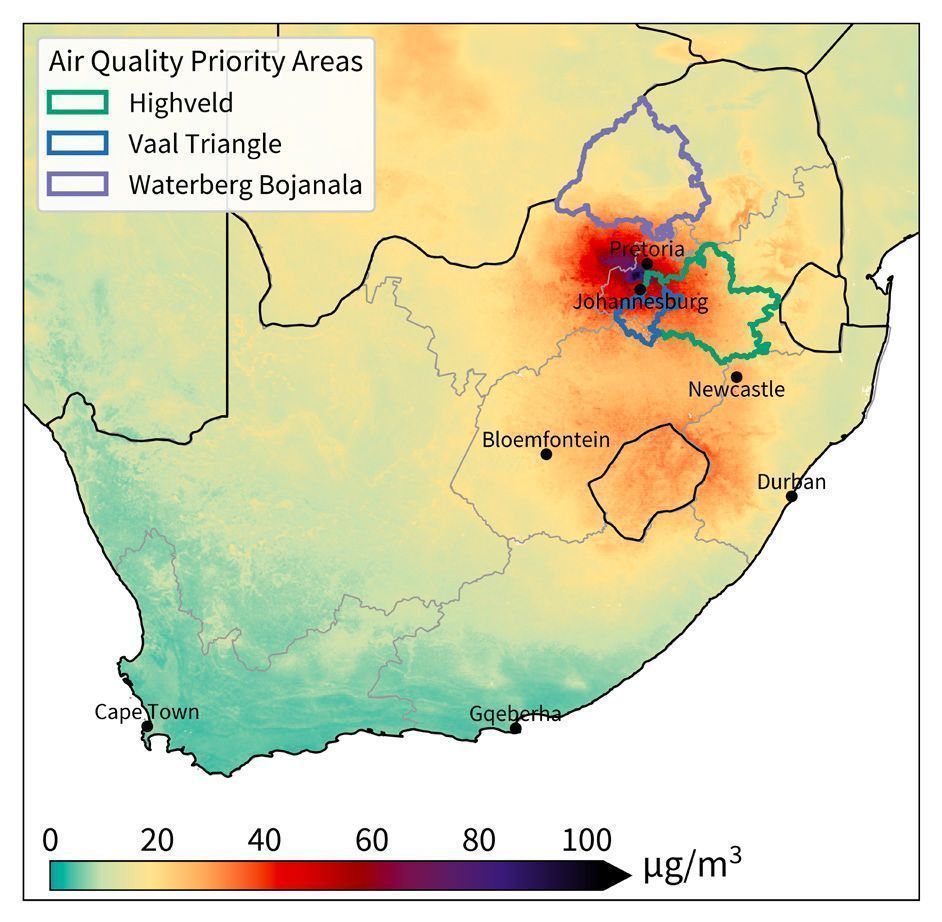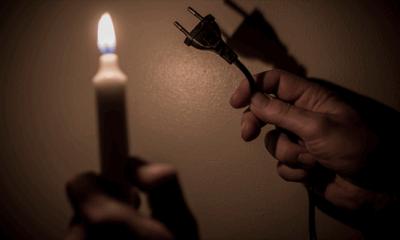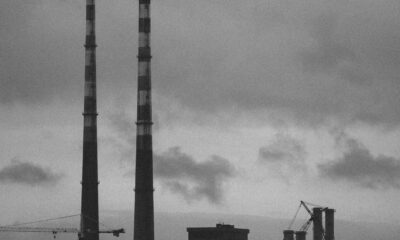News
Deadly Air Pollution in South Africa: How Invisible Particles Are Silencing Thousands

In towns and townships across South Africa, the air we breathe carries a deadly secret. Tiny particles, no bigger than a fraction of a human hair, are quietly wreaking havoc on health and shortening lives. According to a stark new report from Greenpeace Africa and the Centre for Research on Energy and Clean Air (CREA), 42,000 South Africans died in 2023 alone due to PM2.5 pollution — with over 1,300 of these victims being children under five.
What is PM2.5 and Why Should We Care?
PM2.5 refers to fine particulate matter less than 2.5 micrometres in diameter. To put it in perspective, imagine slicing a single human hair into 30 pieces across its width — that’s roughly the size of these particles. Small enough to slip deep into our lungs, these particles come mainly from burning coal, vehicle exhausts, mining, and heavy industries.
This pollution isn’t just an environmental problem. It’s a public health emergency affecting the heart of South African communities — particularly in Gauteng, Mpumalanga, and the Highveld, regions known for their dense industrial activity and coal-fired power plants.
Coal and Industry: The Heart of the Problem
Eskom, South Africa’s giant state-owned power utility, emerges as a major offender. Operating one of the largest coal fleets globally, Eskom emits large volumes of sulfur dioxide and PM2.5 pollutants daily, contributing significantly to poor air quality in urban centres like Johannesburg and Pretoria. In fact, 35% of Johannesburg’s fine particle pollution is linked directly to power plants and heavy industries, while mining contributes about a third of Pretoria’s PM2.5 levels.
Social media has seen a surge of voices demanding action, with hashtags like #CleanAirSA and #BreatheFree trending as communities express outrage over the ongoing health crisis. Many South Africans are connecting the dots between coal pollution and asthma, lung disease, and premature deaths in their families and neighbourhoods.
The Human Cost Beyond the Numbers
Behind the statistics are families devastated by loss and illness. Children growing up with compromised lungs, workers battling respiratory diseases, and entire communities grappling with polluted air. The economic toll is staggering too — with the Greenpeace report estimating the cost of pollution at nearly R1 trillion in 2023, factoring in healthcare expenses, lost productivity, and premature deaths.
Yet, despite this heavy price, industrial polluters have largely escaped accountability. Eskom and other corporations continue to lobby for exemptions from emissions regulations, arguing that costly upgrades and plant closures are financially unfeasible. But this short-term profit is coming at a long-term cost South Africa can no longer afford.
A Constitutional Right to Clean Air, But Where Is the Justice?
South Africa’s Constitution guarantees the right to a healthy environment. Yet, for many, that right is a distant dream. Communities bearing the brunt of pollution are often the same ones grappling with poverty, unemployment, and limited access to healthcare — a stark reminder that air pollution is not just an environmental issue but a social justice crisis.
Greenpeace Africa’s climate campaigner Cynthia Moyo sums it up: “This isn’t just about numbers; it’s about people. The most vulnerable are paying the highest price, while polluters profit unchecked.”
What Needs to Change And Fast
The report sends a clear message: aligning South Africa’s air quality standards with the World Health Organization’s guidelines could save up to 33,000 lives annually. That means no more exemptions, strict enforcement of pollution limits, and a decisive shift away from coal towards cleaner, renewable energy.
Greenpeace Africa’s calls for a “just transition” echo loudly ensuring workers and communities dependent on coal are supported as the country moves to safer energy sources.
Hope on the Horizon?
The crisis is daunting, but awareness is growing. South Africans across social and political spheres are urging policymakers to act decisively. Cleaner air is not just an environmental ambition but a public health imperative that must be met with urgency and compassion.
The question remains: how many more lives must be lost before the air we breathe is treated as the precious right it truly is?
This story touches every South African from the industrial heartlands of Gauteng to the small villages downwind of mines. Clean air is a right, not a privilege, and it’s time we demand that those responsible finally take action.
If you or someone you know has been affected by air pollution, share your story and join the conversation online. Our voices are the first step to change.
{Source: Pretoria Rekord}
Follow Joburg ETC on Facebook, Twitter , TikTok and Instagram
For more News in Johannesburg, visit joburgetc.com



























